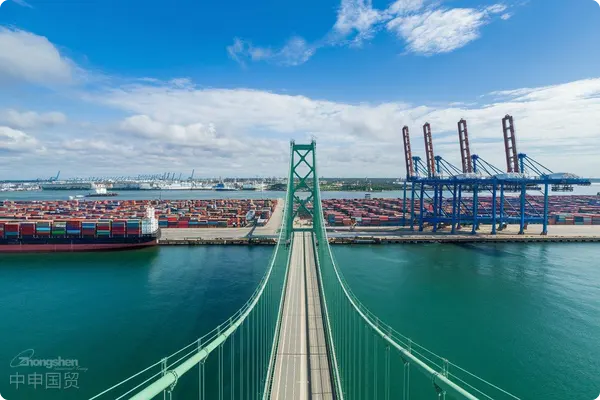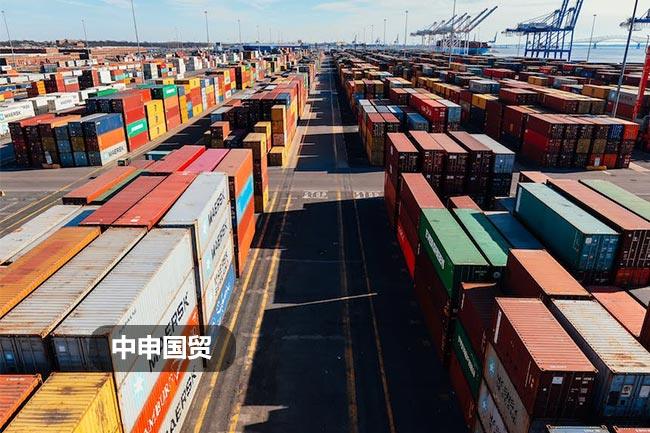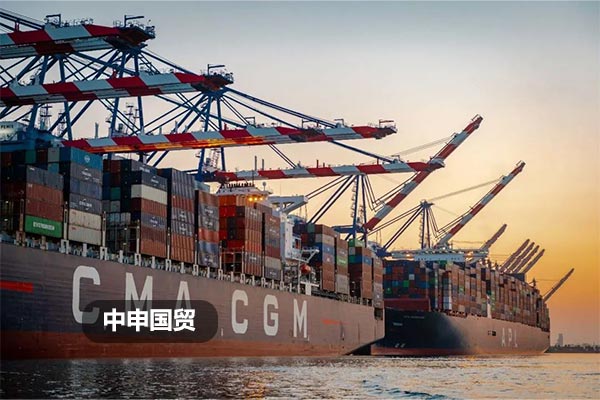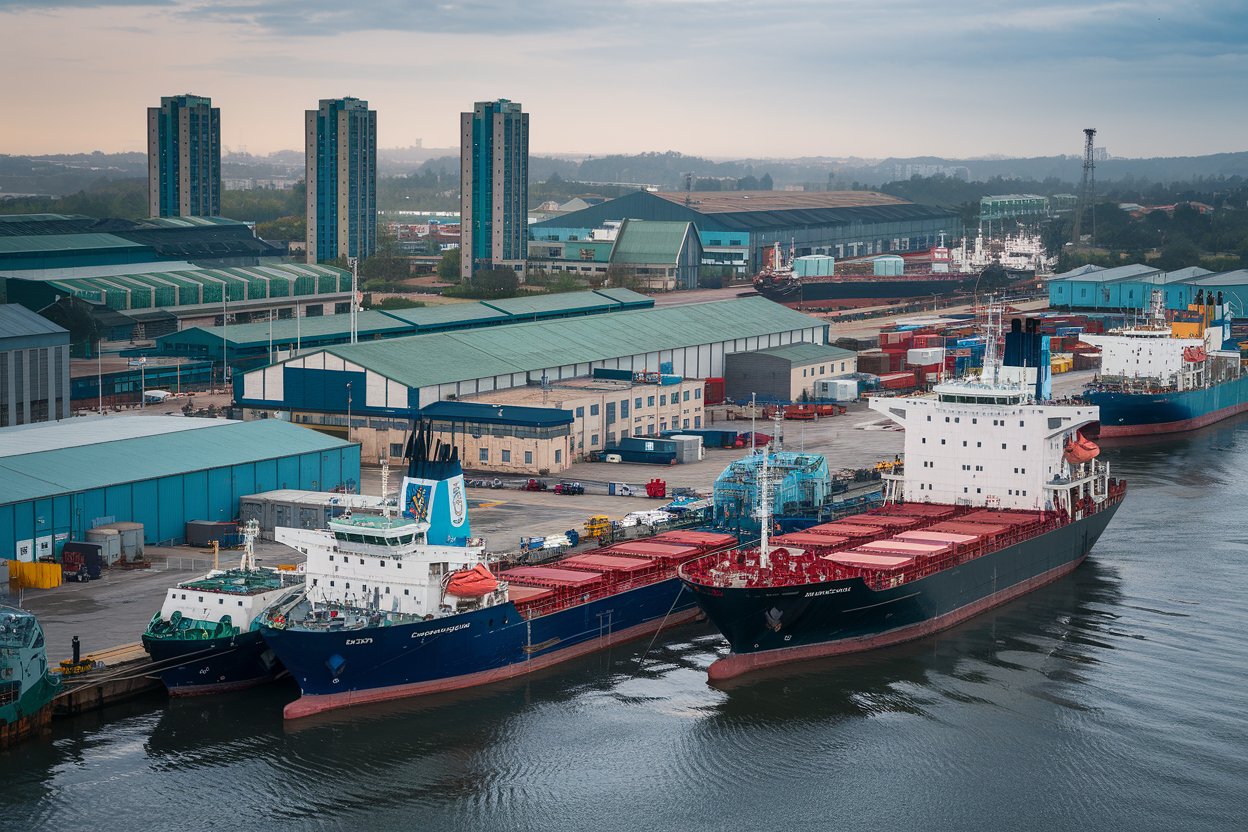- 20 Years of Expertise in Import & Export Solutions
- +86 139 1787 2118

Importing CNC Machines: A Guide for Navigating the Waves of International Trade
In the current boom of global manufacturing, importing CNC machines is like a key that unlocks the door to high-efficiency and precision manufacturing for many production enterprises. However, importing this complex and crucial equipment involves a series of international trade processes, market characteristics, and various regulations and policies, which are undoubtedly hurdles that need to be crossed with caution. This article will provide an in-depth analysis of the many key points of importing CNC machines in international trade from a professional perspective, helping enterprises to complete the import smoothly.
I. International Trade Situation: Coexistence of Challenges and Opportunities
The current international trade situation is unpredictable, with various factors intertwined affecting the trade process of importing CNC machines. From a global perspective, the rise of trade protectionism has led to the continuous emergence of tariff and non-tariff barriers. Some countries, in order to protect their domestic manufacturing industries, have set high tariffs on imported machine tools, which undoubtedly increases import costs. At the same time, frequent changes in trade policies, such as adjustments to import quotas and changes in rules of origin, have also brought much uncertainty to importing enterprises.
But opportunities are also embedded within. With the deepening of the "Belt and Road" initiative, trade cooperation between countries along the route is becoming closer. For the import of CNC machines, the Russian and Southeast Asian markets have become highly potential trade areas due to their geographical location and industrial demand. Russia has a profound foundation in heavy industry and a strong demand for high-precision CNC machines; the manufacturing industry in Southeast Asia is rising rapidly, and the development of industries such as electronics and automobiles has also driven a large demand for advanced machine tool equipment.
II.?Zhong Shen?Professional Competencies: Document Processing and Logistics Arrangement
- Documentation Processing
In the process of importing CNC machines, the accuracy and completeness of documents are crucial. ZhongShen, with years of professional experience, is proficient in handling various trade documents. From commercial invoices, bills of lading to packing lists, and?Certificate of Origin?certificates, every document is prepared in strict accordance with international trade rules and the regulations of the importing country.
The commercial invoice needs to detail key information such as the model, specifications, price, and quantity of the machine tool, ensuring it is consistent with the contract terms. As the document of title, the accuracy of the bill of lading directly affects the smooth delivery of the goods. Our professional team will carefully check the information on the bill of lading, such as the ship's name, voyage, port of loading, port of discharge, shipping marks, number of packages, and weight, to avoid cargo detention or extra costs due to documentary errors. - Logistics Arrangement
CNC machines are usually large in volume and heavy in weight, placing high demands on logistics and transportation. ZhongShen has rich logistics resources and professional logistics planning capabilities. According to the characteristics of the machine tool and customer needs, we will choose the most suitable mode of transport, such as?Ocean shipping?,?air freight?or land transportation.
For sea freight, we maintain close cooperation with major shipping companies to secure the most favorable freight rates and stable shipping schedules. At the same time, to ensure the safety of the goods, we will carry out professional packaging and reinforcement of the machine tools to prevent damage from bumps and collisions during transport. At the port of destination, we can also assist clients with customs clearance procedures to ensure smooth delivery of the goods. If air freight is chosen, although the cost is relatively high, it can greatly shorten the transport time and is suitable for importing machine tools that are urgently needed for production. We will coordinate with airlines to ensure timely loading, transport, and customs clearance of the goods for rapid delivery.
III. Russian Market: VTB?Foreign exchange settlement?Advantages and Trade Points
- VTB Settlement Advantages
When trading CNC machines with Russia, the settlement of exchange is a crucial link. ZhongShen has a unique advantage for the Russian market: VTB settlement convenience. As a large financial institution in Russia, VTB Bank has a solid business foundation and efficient settlement processes in Sino-Russian trade settlement.
After an importing enterprise concludes a deal with a Russian supplier, settling the exchange through VTB Bank allows for a more convenient operational process. Generally, the enterprise only needs to submit relevant trade documents as required by the bank, such as the contract, invoice, and bill of lading, and VTB Bank will quickly review and complete the fund settlement. Compared to other banks, VTB is more familiar with local trade regulations and banking policies in Russia when handling Sino-Russian trade settlement business, which can effectively avoid settlement delays caused by policy misunderstandings or communication issues. This not only speeds up capital recovery but also reduces the risks brought by exchange rate fluctuations, providing strong support for the enterprise's cash flow. - Trade Regulations and Key Points
Russia has strict regulatory requirements for imported CNC machines. Firstly, the machine tools must comply with Russian technical standards and safety regulations, such as GOST certification. Before importing, enterprises need to ensure that the purchased machine tools have passed the corresponding certification, otherwise they may face the risk of the goods being refused entry. Secondly, Russian customs are relatively strict in reviewing the declared value of imported goods. Enterprises should declare the price of the machine tools truthfully to avoid customs investigations and penalties caused by under- or over-invoicing.
IV. Southeast Asian Market:?Import/export?Process and Solution
- Import Process
- Pre - preparation: Before deciding to import CNC machines from Southeast Asia, enterprises need to clarify their own needs and choose a suitable supplier. By communicating with the supplier, obtain detailed technical parameters, prices, delivery times, and other information about the machine tools, and sign a formal trade contract. The contract should specify terms such as quality standards, payment methods, transport methods, and after-sales service to protect the rights and interests of both parties.
- Document processing: Enterprises need to prepare basic documents such as commercial invoices, bills of lading, packing lists, and certificates of origin. In addition, depending on the requirements of different countries, it may also be necessary to provide quality inspection certificates, fumigation certificates, etc. For example, Indonesia may require fumigation treatment for wooden packaging and the provision of a corresponding certificate.
- It is recommended to purchase all - risks insurance, especially for precision equipment: Depending on the urgency and cost considerations of the machine tool, choose sea or air freight. Sea freight is suitable for large-volume, heavy machine tool transport, with relatively lower costs. Before shipment, the machine tools need to be properly packaged with moisture-proof and shock-proof measures. Air freight is fast but expensive, suitable for urgently needed machine tools.
- Customs clearance and cargo pickup: After the goods arrive at the destination port, the importing enterprise needs to entrust a local freight forwarder or customs broker to handle customs clearance procedures. During clearance, a complete set of documents must be submitted, and customs duties and value-added tax must be paid according to local customs requirements. The tax rates and clearance policies vary from country to country. For example, Vietnam may have certain import preferential policies for some CNC machines, which enterprises should understand and reasonably utilize in advance.
- Solution
In response to potential problems in the process of importing CNC machines from the Southeast Asian market, ZhongShen provides comprehensive solutions. In terms of supplier selection, we can recommend reputable suppliers with reliable product quality to enterprises based on our market resources and business experience in the Southeast Asian region, and assist enterprises in business negotiations. For document handling, our professional team is familiar with the document requirements of various Southeast Asian countries and can ensure the accuracy of the documents, avoiding customs clearance delays due to documentary issues. During transportation, we will track the cargo dynamics in real-time. In case of unexpected situations, such as severe weather or port congestion, we will promptly adjust the transport plan to ensure that the goods arrive on time and safely. In the customs clearance stage, we maintain close cooperation with local freight forwarders and customs brokers, are familiar with the customs policies and operating procedures of various countries, and can quickly resolve various problems that arise during the clearance process.
V. Product Certification Service: Assisting, Not Handling
Imported CNC machines often need to meet the product certification requirements of different countries. Although ZhongShen does not directly provide certification services, we will use our professional knowledge to inform clients in detail about the required certification types and procedures.
For example, in the EU market, CNC machines need to pass CE certification, which involves requirements in safety, health, environmental protection, and other aspects. We will assist clients in preparing the materials required for certification and guide them on how to communicate with the certification body to ensure a smooth certification process. In Russia, as mentioned earlier, GOST certification is essential. We will interpret the certification regulations for clients, assist them in organizing relevant technical documents, and help them accelerate the certification process so that the imported machine tools can quickly meet market access conditions.
In short, importing CNC machines in a complex international trade environment requires professional?Foreign trade?agency services. With its professional capabilities in document handling and logistics arrangements, its VTB settlement advantage for the Russian market, and its in-depth understanding of and solutions for the Southeast Asian import-export process, ZhongShen provides comprehensive support and assurance for enterprises importing CNC machines, helping them seize the initiative in the global manufacturing competition.
Recommended for You
- 進(jìn)口通風(fēng)設(shè)備,如何突破貿(mào)易關(guān)卡暢行無阻?
- Importing Audio Equipment: Know-how and Strategies for Foreign Trade
- A Complete Analysis of Export Agency Fees: How to Choose the Optimal Solution?
- Importing Bathroom Supplies from Italy, a Complete Foreign Trade Process Analysis
- Importing Household Ladders from Germany: How to Navigate Foreign Trade Hurdles?
? 2025. All Rights Reserved.










